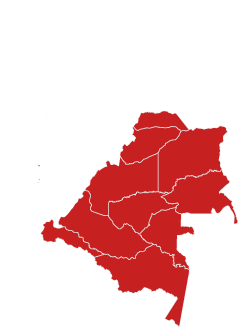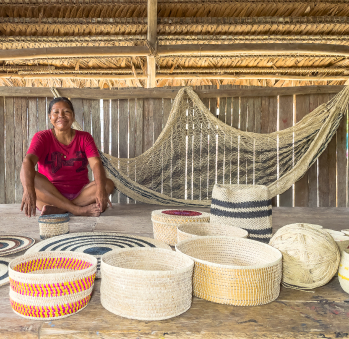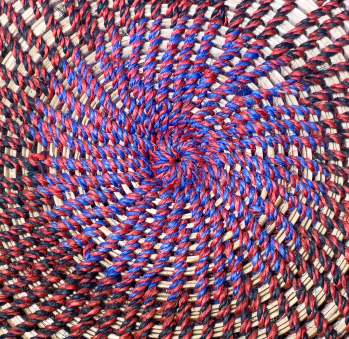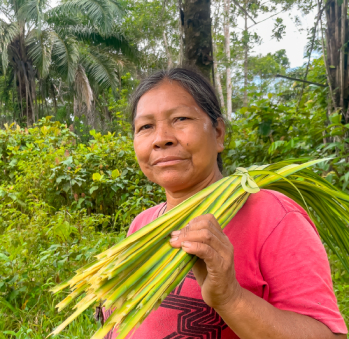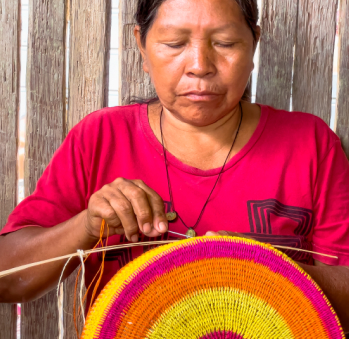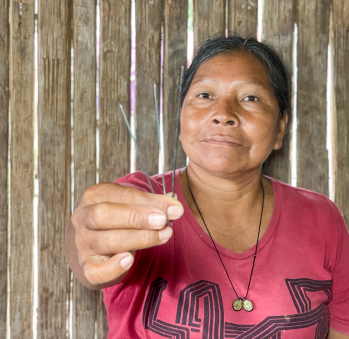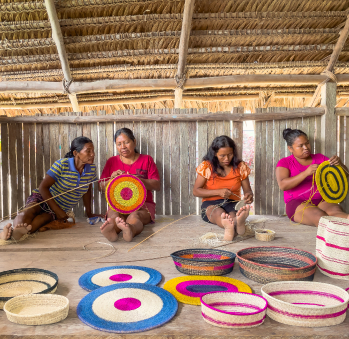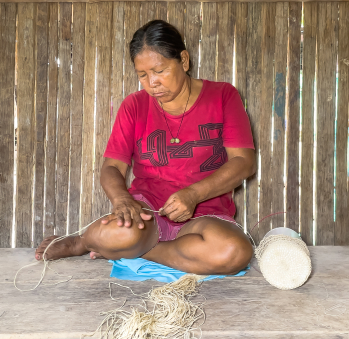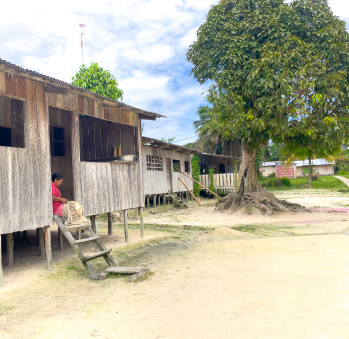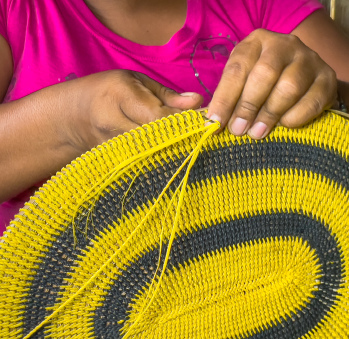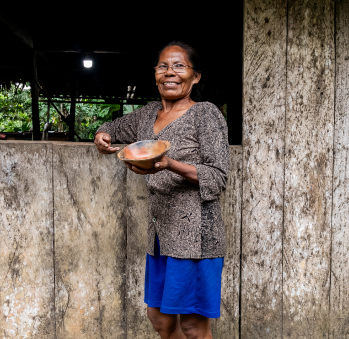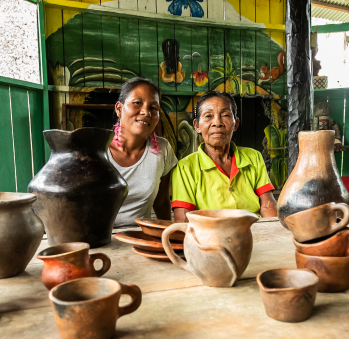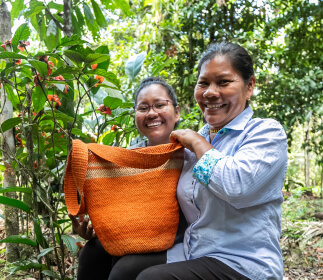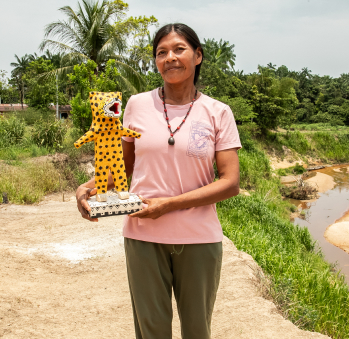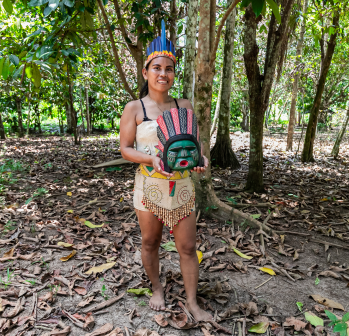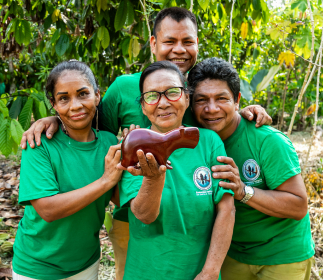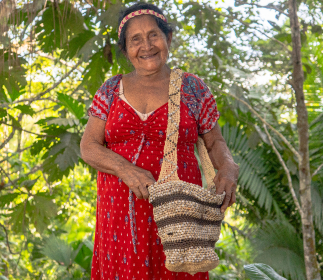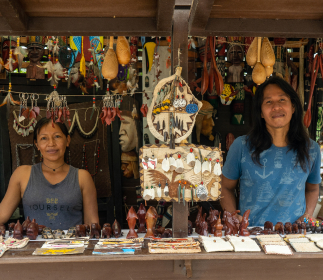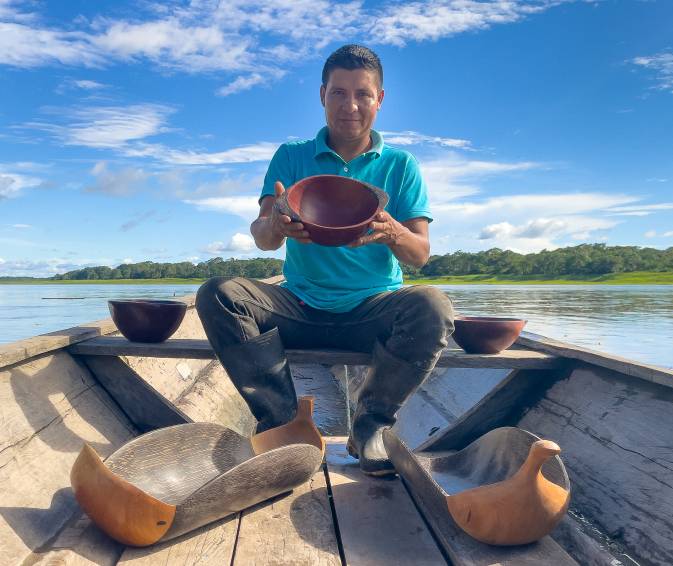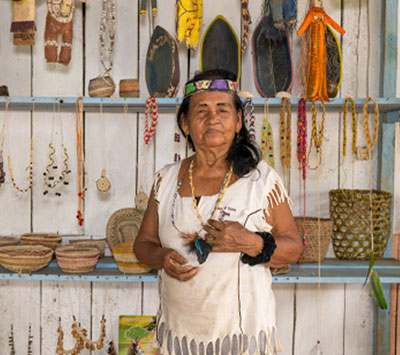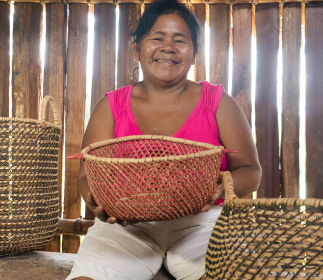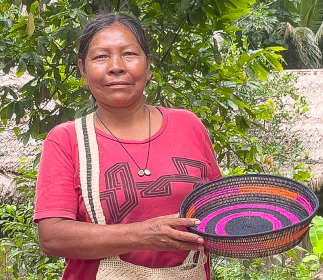Credi Pereira
Workshop: Daire Paracaure
Craft: Weaving, Nonwoven fabrics and Basketry
Trail: Amazon Route
Location: Nazareth, Amazonas
SCHEDULE YOUR VISIT
Comunidad Ticuna de Nazareth
3227084833
3125506905
3132376867
daireparacuare@gmail.com
She was born in the Tikuna de Nazareth indigenous reservation, 45 minutes away from Leticia. The latter can be accessed either by car or by motorboat. This will allow you to experience the vastness of the Amazon River while you reach the settlement. Credi speaks Spanish very clearly. She was taught the language by the Lauritas nuns who arrived in the area decades ago to evangelize its communities. She tells us that these nuns have now moved to La Chorrera, but that there will always be a place for them within the reservation. These nuns gained the community’s affection by respecting its beliefs. They worship the god Gutapa, whose descendants are carvers, canoe and oar makers, and weavers.
Credi’s stories revolve around everything she learned from her mother Martina and her grandmother Francisca. Ever since she was a girl, she watched them remove the thorns from the chambira fibers and strongly twist them in between their legs to dry them. This process was made it so they could work with these materials and craft mochila bags and chinchorro hammocks. She tells us of how the customary trades have always been at the service of the Tikuna people: whether they were used to make fishing canoes, chinchorros in which to rest, or sieves with which to process cassava into manioc flour, the basis of their diet.
She also tells us that the girls from this community grow up inside the reservation following the older women’s example. They learn to grow plantain, cassava, and fruits; and to harvest the chambira from the rainforest that later they use to make the cord they weave with. These are things the community’s women have always done. They all look forward to passing from girlhood to womanhood in the confinement ritual. Through said ritual, they deepen their knowledge of their crafts. When it is over, they are able to apply the knowledge they have received in their own households.
Credi remembers how her grandmother told her that, a long time ago, when she was still just a young child, everything was exchanged through bartering. They exchanged gasoline for salt and soap, and mochilas or clay jars for food with which to fill their pantries at home. This lasted for a long time. Even Credi and her siblings carried the clay with which they were to make the pots that would later be exchanged.
She is aware of the dangers of deforestation and of the importance of preserving her language to protect the identity of her entire community. She loves weaving and does whatever she needs to do to practice her trade. This community’s women replaced their broken needles with ones made from umbrella rods. These women, followers of their gods, are extremely resourceful, a fact that reveals what their craft means to them.
Craft
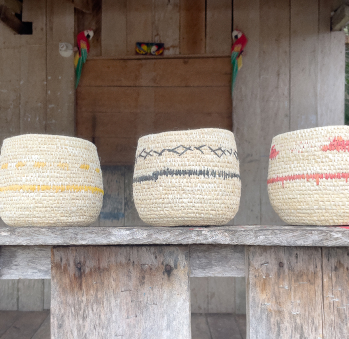
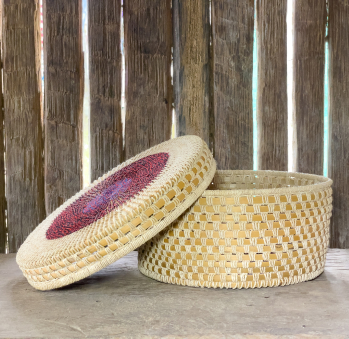
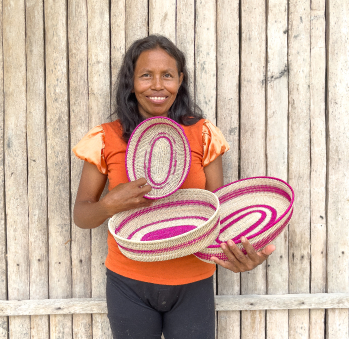



Artisans along the way
Artisans along the way
No puede copiar contenido de esta página

